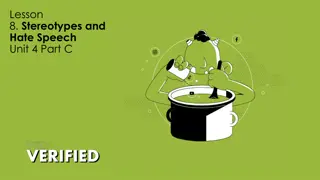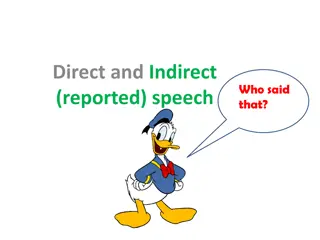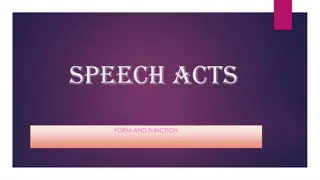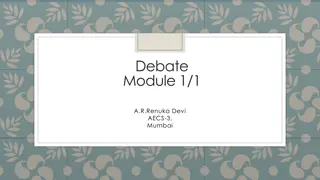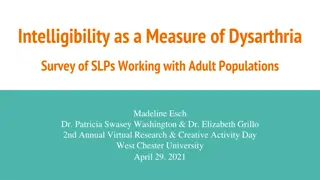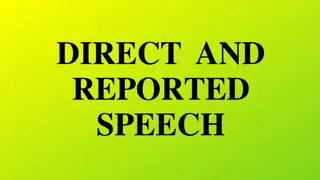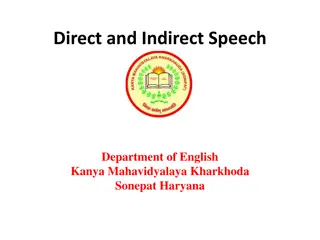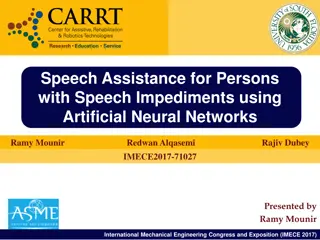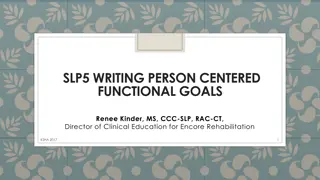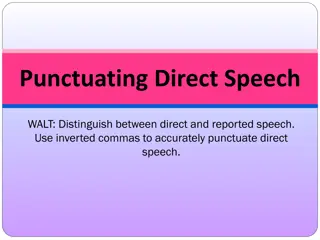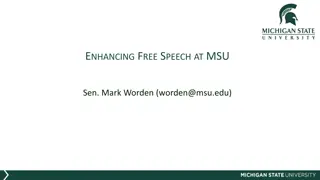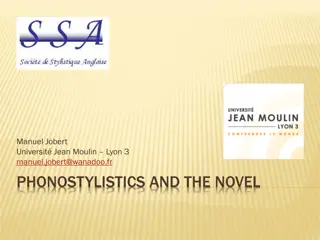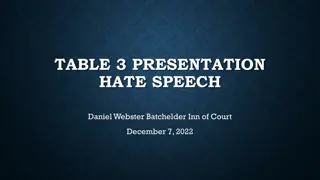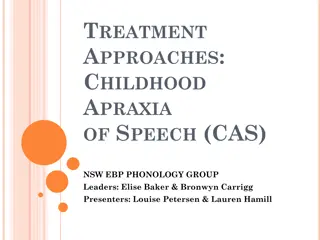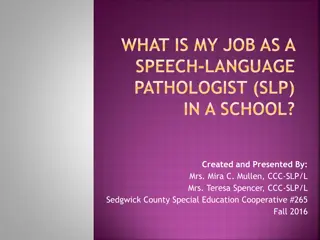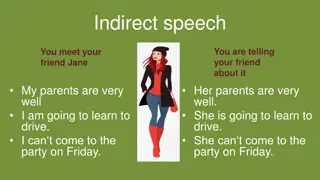Insights on Education Policy and Free Speech Debates
This presentation by V. Wayne Young, General Counsel of the Kentucky Association of School Administrators, delves into historical legislative actions, legal precedents, and current challenges facing superintendents and school boards in expressing their views on education policies and the exercise of free speech. The content discusses issues such as compliance with advisories, protection of political speech, and the statutory obligations of local school boards in promoting public education.
Download Presentation

Please find below an Image/Link to download the presentation.
The content on the website is provided AS IS for your information and personal use only. It may not be sold, licensed, or shared on other websites without obtaining consent from the author.If you encounter any issues during the download, it is possible that the publisher has removed the file from their server.
You are allowed to download the files provided on this website for personal or commercial use, subject to the condition that they are used lawfully. All files are the property of their respective owners.
The content on the website is provided AS IS for your information and personal use only. It may not be sold, licensed, or shared on other websites without obtaining consent from the author.
E N D
Presentation Transcript
Presented by V. Wayne Young, General Counsel Kentucky Association of School Administrators September 2024 Council for Better Education
The Wisdom of Solomon What has been will be again, what has been done will be done again; there is nothing new under the sun. Ecclesiastes 1:9 In 1989, legislators were so angry with superintendents that they proposed legislation making it illegal to sue the General Assembly. The punishment for superintendents ended up being a requirement that all superintendents in Kentucky including those already in office be required to pass the testing program in order to retain their certificate.
Dj vu: Amendment 2 An advisory from the Attorney General and saber- rattling from an out-of-state organization that claims to support free speech (except when they disagree with it) are part of a clear strategy to intimidate and muzzle superintendents and school boards, making them fearful of speaking out against Amendment 2. Clear precedent in cases from both the Kentucky and United States Supreme Court(s) establish the right even the duty of superintendents and boards to speak out on matters of public policy that have a negative impact on public elementary and secondary education.
The Advisory There is legitimate disagreement over the guidelines contained in the Advisory issued by the Attorney General, but superintendents are best-advised to comply. Those guidelines primarily address not using school funds or school time to conduct advocacy activities. However, the document includes an ominous warning that the Attorney General will monitor reports of violations. In an amazing coincidence, an out-of-state advocacy organization claims to have already discovered one.
Not in the Advisory An indispensable principle of free speech guaranteed by the First Amendment to the United States Constitution is that debate on public issues should be uninhibited, robust, and wide-open, and that it may well include vehement, caustic, and sometimes unpleasantly sharp attacks on government and public officials. . . . Accordingly, political speech directed toward public officials is at the pinnacle of protected speech. Welch v. American Publishing Company of Kentucky, 3 S.W.3d 724 (1999), citing New York Times Co. v. Sullivan, 376 U.S. 254 (1964)
Not in the Advisory [It is] the statutory duty of local school boards to promote local education . . . and to do all things which are necessary in the opinion of the local board to promote public education . . . The Council and the local school boards . . . are statutorily obligated to promote public education for their respective constituents, the students in their school districts. The local school board and the Council have a judicially recognizable interest in a system of efficient common schools, and we so recognize and declare. Rose v. Council for Better Education, 790 S.W.2d 186 (1989)
The Harsh Realities Regardless of the outcome of the vote on Amendment 2, there will be retribution. Regardless of whether superintendents and board members speak out or not, there will be retribution. Even permissible actions taken will be challenged. Passage of Amendment 2 goes far beyond vouchers. The General Assembly will be free to appropriate funds directly to private schools; to allow parents of home school students to seek tax refunds/credits for education expenses; to directly fund charter schools operated by for-profit, out-of-state entities.
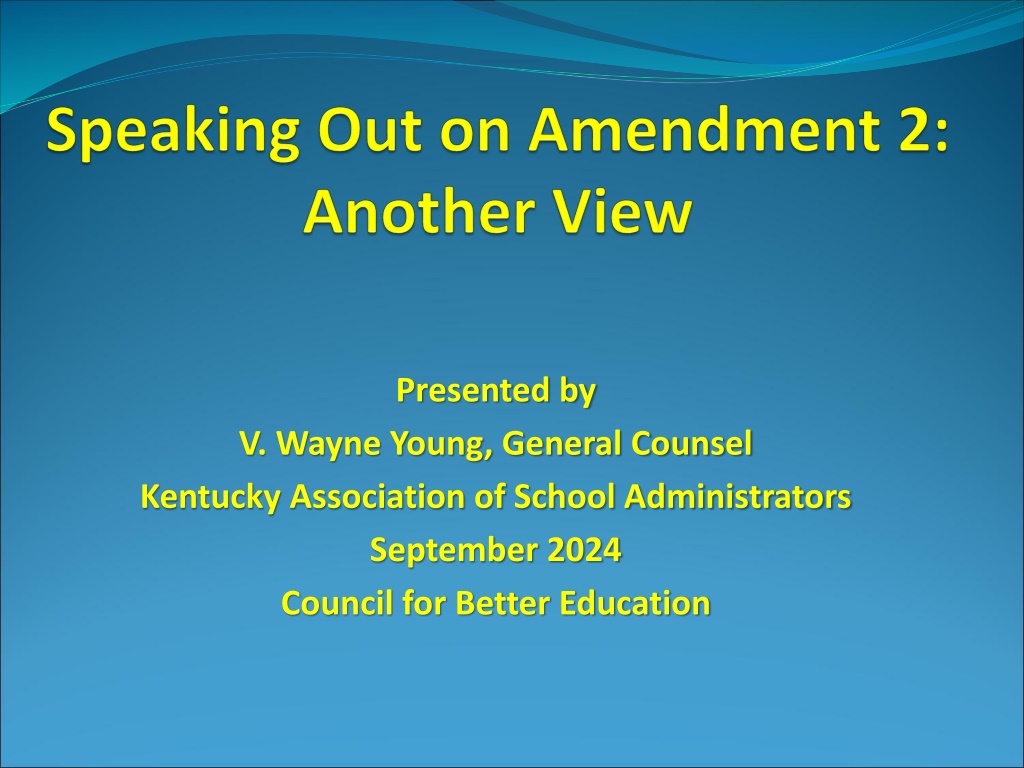







![Prevention and Combating of Hate Crimes and Hate Speech Bill [B.9B.2018]](/thumb/60513/prevention-and-combating-of-hate-crimes-and-hate-speech-bill-b-9b-2018.jpg)
